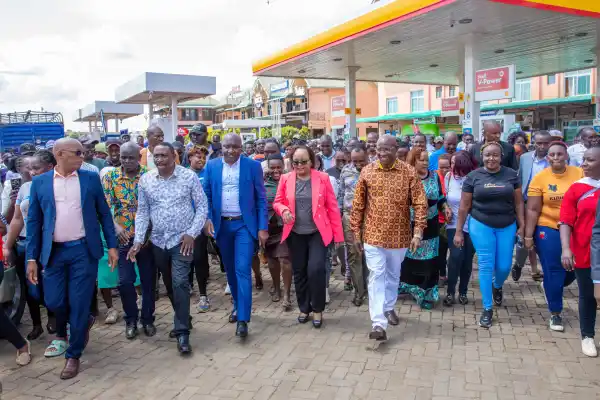Kirinyaga Governor Anne Waiguru has signaled her readiness to seek another political seat in the 2027 general elections, responding positively to calls from residents urging her to consider a new leadership role. Addressing locals, Waiguru said her future in politics will be determined by the people of Kirinyaga.
“I know because of my performance in terms of development, you will support my bid for any political seat when the time for elections comes. I ask you not to chase me away when I come asking for your support,” she said confidently.
The two-term governor highlighted her development record as the foundation of her political strength, stating that she is closely monitoring the political atmosphere and remains open to various options.
Waiguru also cautioned against divisive politics, urging Kenyans to embrace political tolerance and democratic discourse. “Where we are heading, we are playing with fire. There are those trying to stop others from speaking just because they are in a different political camp. Let us be tolerant to diverse views because Kenyans are clever enough to decide who they will vote for,” she stated.
On economic matters, Waiguru voiced concern over the national government’s recent directive allowing duty-free importation of 500,000 metric tonnes of rice. She urged the state to prioritize purchasing locally produced rice before turning to imports.
“Our stores are full of rice. Before importing from outside, buy our local rice first,” she asserted, adding that she could not sit idly by while farmers in Mwea suffer. Waiguru warned that the influx of cheap imported rice would hurt the livelihoods of local farmers and undermine national food security.
Kirinyaga County is home to the Mwea Irrigation Scheme, Kenya’s largest rice-growing area, spanning over 30,000 acres. The region produces approximately 200,000 metric tonnes of rice annually, contributing over Ksh. 15 billion to the local economy and supplying more than 60% of the country’s rice consumption.
Waiguru called for a balance between importation and local production, emphasizing that Kenya’s food security and economic resilience depend on protecting its farmers.

